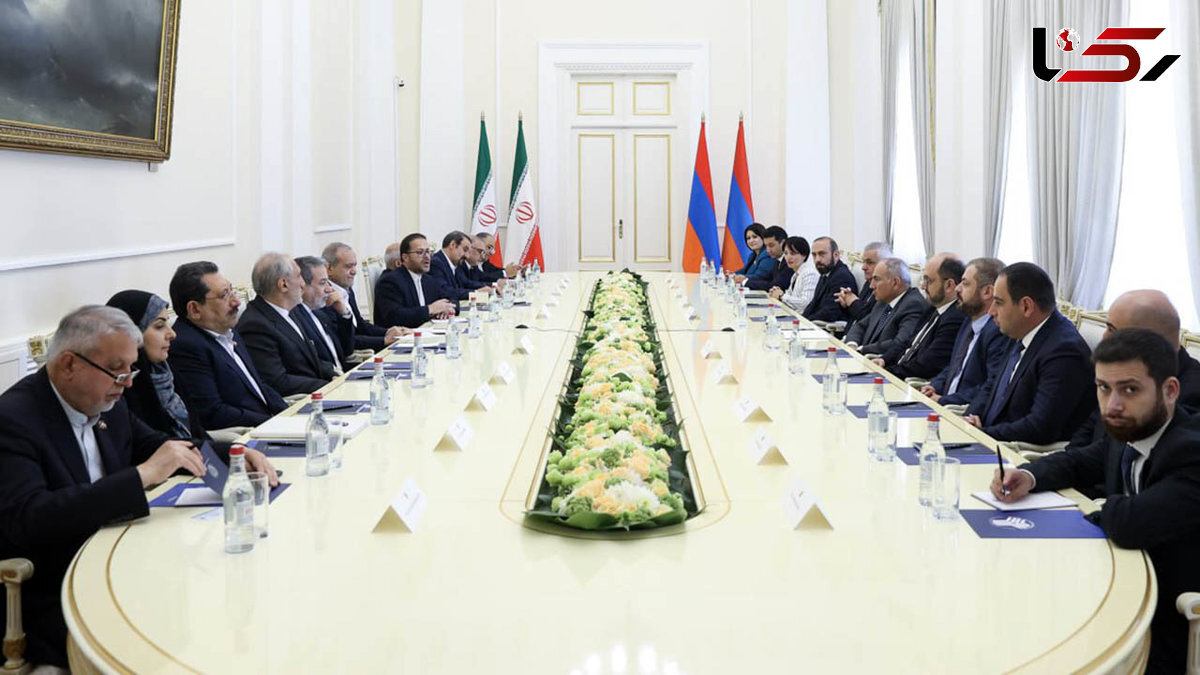Iranian President Masoud Pezeshkian visited Armenia with a senior cabinet delegation to deepen bilateral ties in the areas of transport, infrastructure, and trade, culminating in a joint statement and 10 memoranda of understanding. Signed in the presence of Pezeshkian and Armenian Prime Minister Nikol Pashinyan, the documents encompass a range of fields, including politics, social affairs, culture, tourism, industry, education, road and urban development, art, and health. Officials framed the visit around expanding north–south and Persian Gulf–Black Sea connectivity, easing transit bottlenecks, and boosting commerce toward a $3.0 billion target. According to Tehran Times, the visit featured extensive talks on transit corridors, regional connectivity, and economic partnerships, underscoring the two neighbors' intent to deepen strategic cooperation.
On the transport front, Iranian Minister of Transport and Urban Development Farzaneh Sadegh met Armenian Minister of Territorial Administration and Infrastructure Davit Hovhannisyan to advance infrastructure planning, enhance logistics networks, and resolve transit disputes. Sadegh emphasized the strategic importance of the north–south and Persian Gulf–Black Sea corridors, urging upgrades to Armenia's road, rail, and logistics systems and calling for routes that avoid geopolitical disruptions. She pressed for addressing a roughly $330 tariff discrepancy affecting Iranian vehicles. She described the reopening of the Jolfa–Yerevan–Georgia rail link as a significant step for regional transit, calling the president's visit a turning point in the logistics ties between Tehran and Yerevan. Hovhannisyan thanked Iran for its support after the 2024 earthquake, praised Iranian contractors, announced a tender for a new segment of the north–south route, and confirmed the establishment of a joint working group to tackle tariff issues.
In the economic arena, Iranian Industry, Mine, and Trade Minister Seyed Mohammad Atabak met Armenian Economy Minister Gevorg Papoyan and set a goal to raise bilateral trade to $3.0 billion. The two sides proposed a joint working group, including their deputies, to fast-track agreements and facilitate commerce in the industrial and trade sectors.
To ease border and customs frictions, Mohammad Reza Bahraman, deputy head of Iran's Chamber of Commerce, Industries, Mines and Agriculture (ICCIMA), met Armenia's State Revenue Committee deputy to propose a four-party committee of the two chambers of commerce and customs authorities. The body would resolve certificates of origin and other border issues while strengthening private-sector cooperation. ICCIMA's international deputy, Hamid Asgari, highlighted the need to deploy "green corridor" mechanisms for perishable goods and to digitize customs processes. Armenia's State Revenue Committee Deputy, Rafael Gorkian, stated that Armenia has increased investment in border infrastructure, including the awarding of a new border road contract to an Iranian company, and vowed to prevent illegal crossings strictly.
Trade momentum is building. Iran's Ambassador to Yerevan, Mehdi Sobhani, recently stated that bilateral trade is nearing $ 1 billion. Armstat data show that trade reached $737.4 million in 2024, up 6.5 percent year-over-year. The first five months of 2025 totaled $278.7 million, a 4 percent rise. Tourism flows are also expanding: in the first 11 months of last year, about 276,000 Armenians visited Iran and 176,000 Iranians traveled to Armenia. Iranian visitors to Armenia increased by 20 percent in the first 11 months of 2024. Iranians accounted for 8 percent of Armenia's 691,900 tourist arrivals in the first five months of this year, trailing behind Russia (37 percent) and Georgia (15 percent).
Both countries are advancing energy, transport, and trade links, including a nearly complete electricity transmission line and expanded border crossings. With Armenia seeking alternative trade routes amid tensions with Azerbaijan, officials in both capitals have called for removing obstacles to deeper integration. Armenia's Ambassador to Iran, Grigor Hovhannisyan, urged joint efforts to reach $3.0 billion in trade, citing the role of the private sector, Iran's observer status in the Eurasian Economic Union, and opportunities for joint manufacturing. ICCIMA head Samad Hassanzadeh stated that Iranian firms are ready to supply engineering services and cooperate in various sectors, including health, pharmaceuticals, oil, gas, petrochemicals, automotive, food, and construction materials, while also expanding tourism and medical tourism ties.
Photo: Tehran Times
